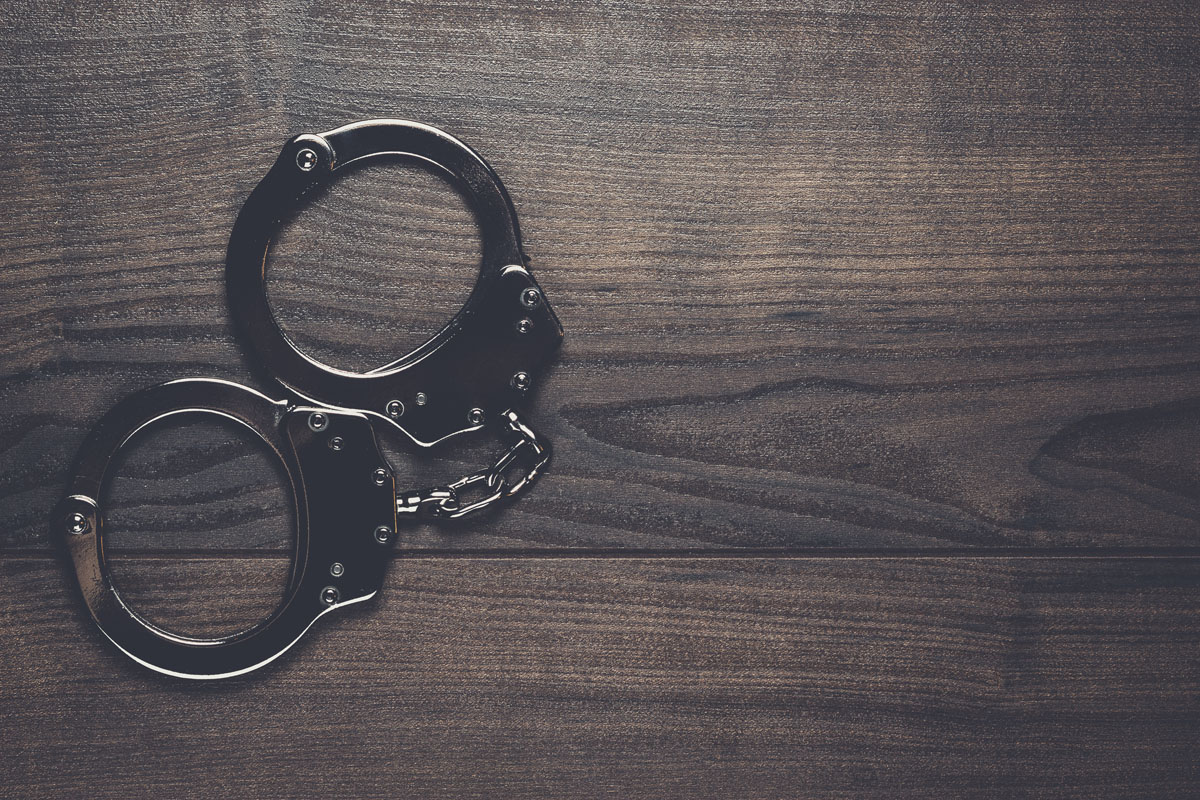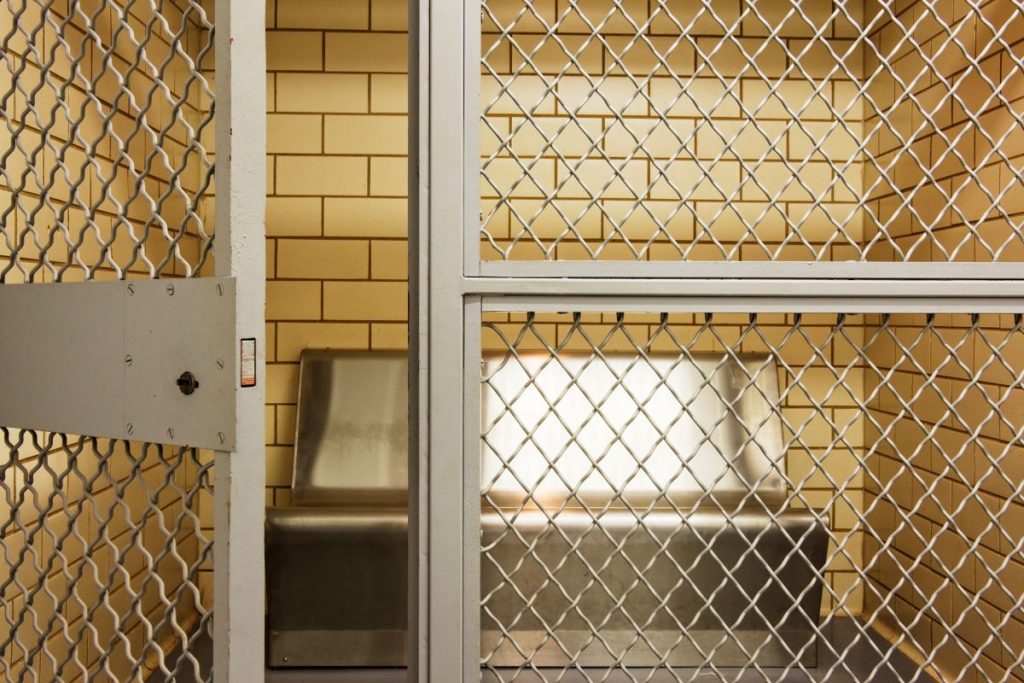What Is The Average Retainer Fee For A Criminal Lawyer?
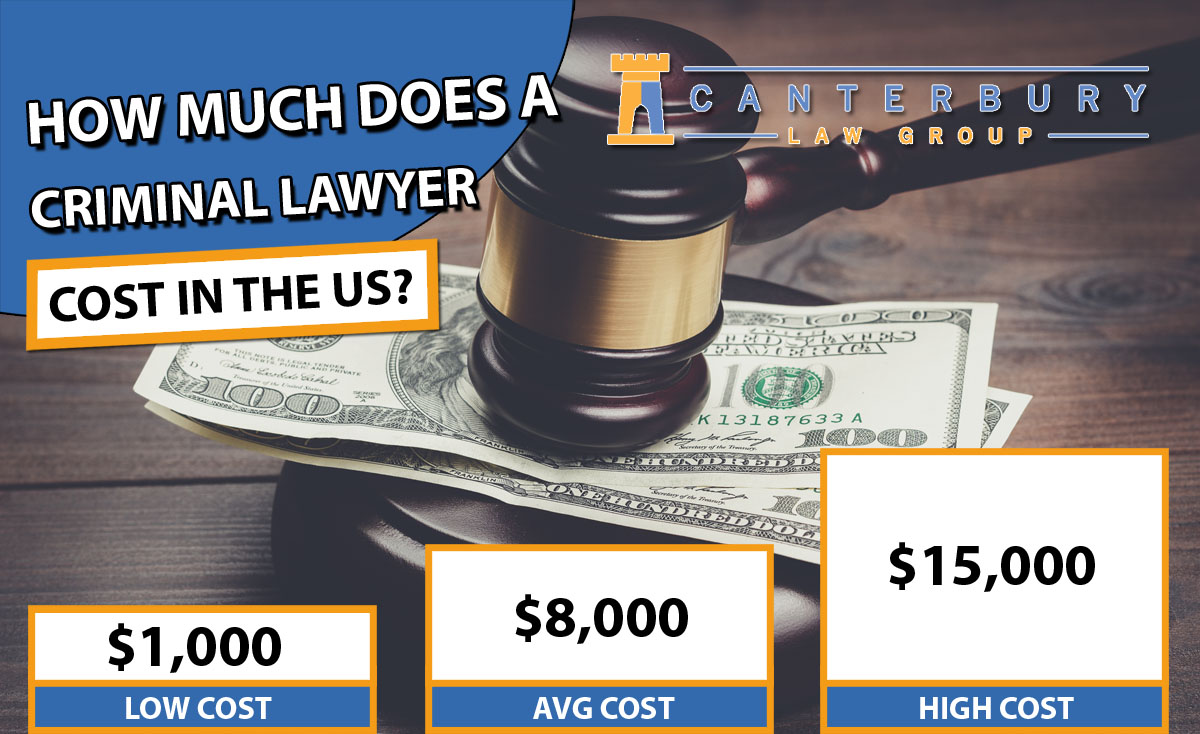
The average cost of a criminal defense lawyer is $8,000 with average prices ranging from $1,000 – $15,000 in the US according to LegalMatch [1]. *Disclaimer – This is not an actual quote. If you need an experienced criminal defense lawyer contact Canterbury Law Group to start your initial consultation.
In criminal prosecution actions, the Constitution guarantees you a right to counsel. If you are unable to afford the services of a private attorney, the court will appoint an attorney on your behalf. Based on your assets and income, the court may decide you can afford an attorney, in that situation you can either represent yourself or hire a private attorney.
What Factors Cause Criminal Defense Costs to Vary?
There are many factors to consider when assessing the overall costs of a criminal case:
Investigators and Expert Witnesses – Very often criminal cases have multiple and complex issues that require expert witnesses and/or investigators. To demonstrate, a defense attorney may hire the services of someone who specializes in chemical testing to explain the results of a Blood Alcohol Content analysis in a DUI trial. Or the services of a psychologist may be required if the defendant is wishing to raise a defense of legal insanity. Expert witnesses and investigators require an average retainer fee of $2,500 and they may charge in excess of $300 per hour.
Attorney’s Fees – Attorney’s fees vary depending on several different factors. Here are some of the more important factors that will have an impact on the rate attorney’s charge:
- Whether the case goes to trial.
- Whether the attorney charges a flat fee or by the hour.
- The skill of the attorney.
- The number of years the attorney has practiced criminal defense.
- The seriousness of the charged offense.
- The complexity of the legal issues in the case.
- The number of years the lawyer has appeared in criminal court in that particular jurisdiction.
How Much Will It Cost if the Lawyer Charges a Flat Fee?
If you face a misdemeanor charge and the lawyer charges a flat fee, expect to pay somewhere between $1,500-$3,500. If going to trial is a possibility, you can expect the fee to be between $3,000-$5,000. When the severity of the charge rises to a felony and when the lawyer thinks that he may be able to obtain a settlement that is favorable, the flat fee may range from $3,000-$6,000. But if it seems inevitable there will be a felony trial, flat fee costs ranging from $10,000-$20,000 are not uncommon. When you are facing serious charges where life in prison is a possibility, such as murder, for a lawyer working on a flat fee you can expect to pay upwards of $40,000.
Criminal Defense Attorney Fees Per Hour
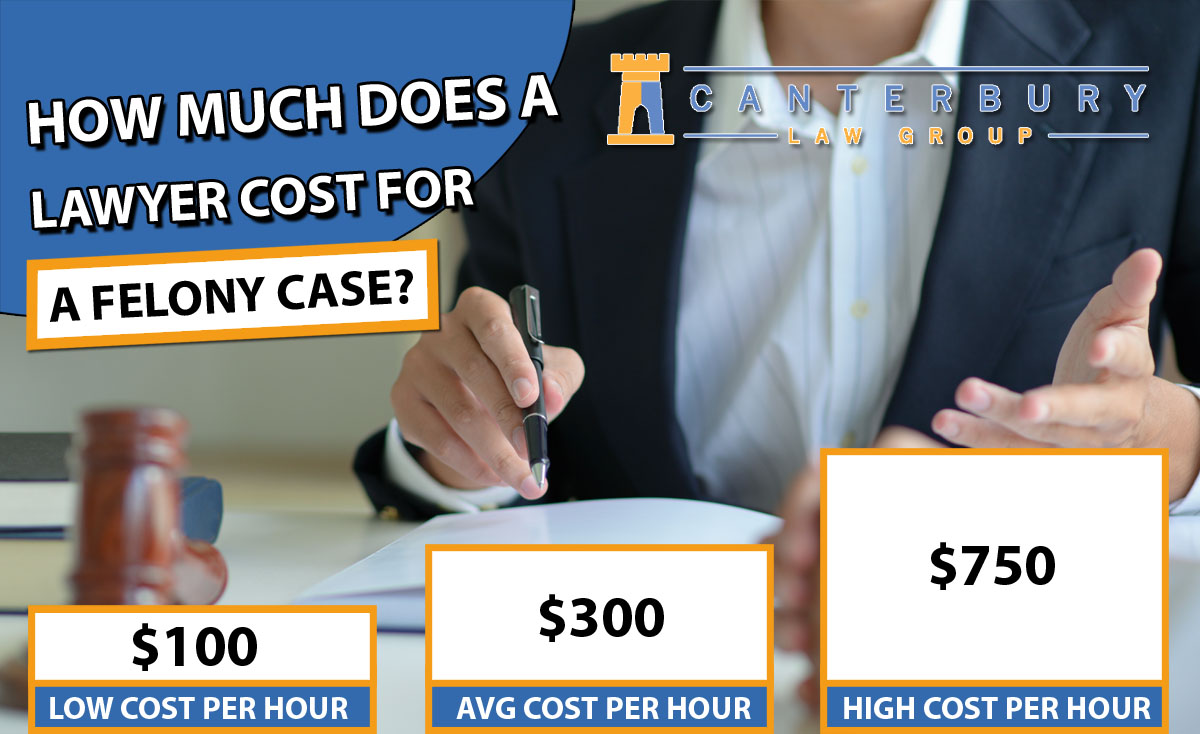
You can expect to pay anywhere from $100 to $300 per hour to hire a criminal defense lawyer according to CostHelper. For example, Thumbtack says, “if an attorney has a $200 hourly fee, he or she may require a 10-hour retainer fee of $2,000”
Some attorneys and those who are already well known in their practice area will often charge by the hour to their clients as opposed to using a flat rate fee. Additionally, if an appropriate flat fee cannot be determined because or the complexity of a case, the attorney may decide to charge an hourly rate instead. The relative ability of the lawyer will cause the hourly rates they charge to greatly differ. For a highly experienced criminal defense lawyers time you can expect to pay $250-$750 per hour. It is worth noting that it is not uncommon for legal bills to quickly mount up into the $10,000-$15,000 range per month when an hourly fee structure is being utilized.
Attorneys.com says “Criminal lawyers who charge by the hour may break up the hour into 15-minute or 6-minute increments… The lawyer who charges $200 an hour in 15-minute increments would charge you $50 for that time, while a lawyer who charges the same but in 6-minute increments would only charge you $20.”
In addition, the payment of an up front retainer may be required by a lawyer who is charging you by the hour. This retainer will cover an agreed amount of the lawyer’s initial time. Once the retainer is exhausted, the client will be expected to replenish with new funds.
How Much Does a Lawyer Cost for a Misdemeanor or Felony?
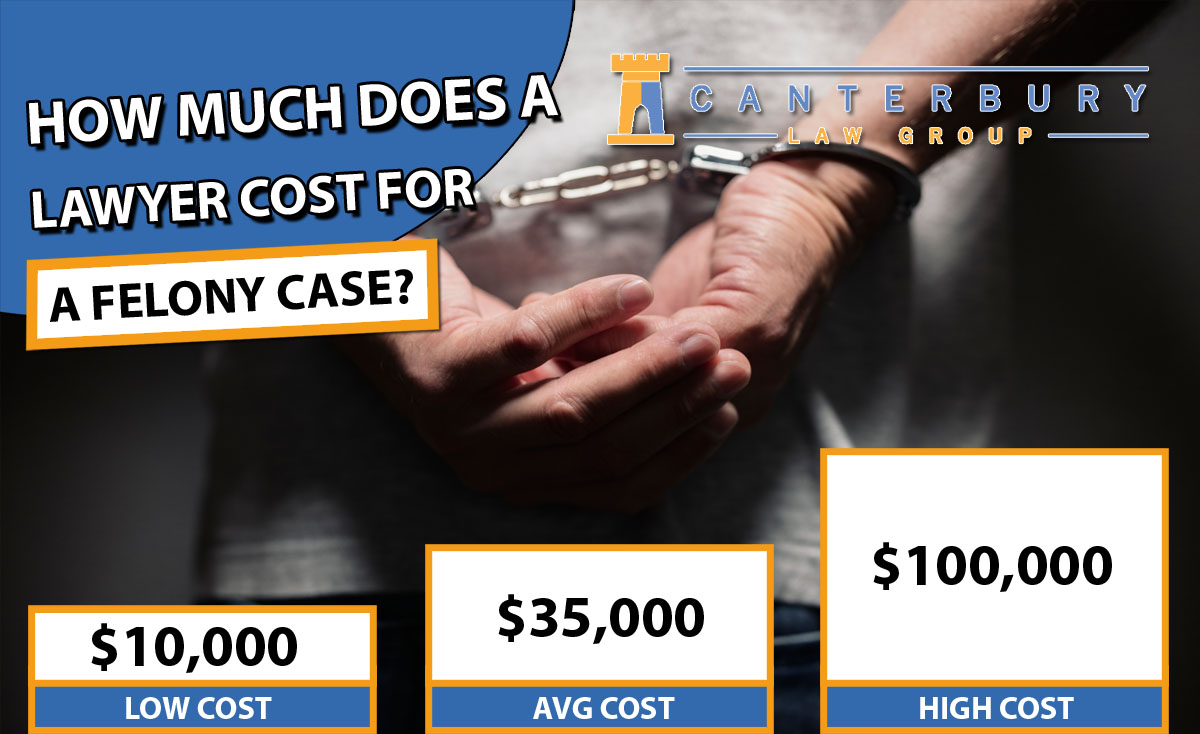
A lawyer costs about $2,000 to $3,000 for a misdemeanor. According to Nolo, “a defendant charged with a misdemeanor that goes to trial should not be surprised by a legal fee in the neighborhood of $2,000–$3,000; an attorney may want an advance of around $2,500, and $1,000 per day of trial in a felony case.”
A lawyer can cost anywhere from $10,000 to $100,000 for a felony. TheLawMan says, “most will agree that the cost for a first-degree felony is at least $10,000, often more. For the most experienced lawyers, you should expect to pay between $35,000 and $100,000 or even more.”
How Much Does a Lawyer Cost for Drug Possession?
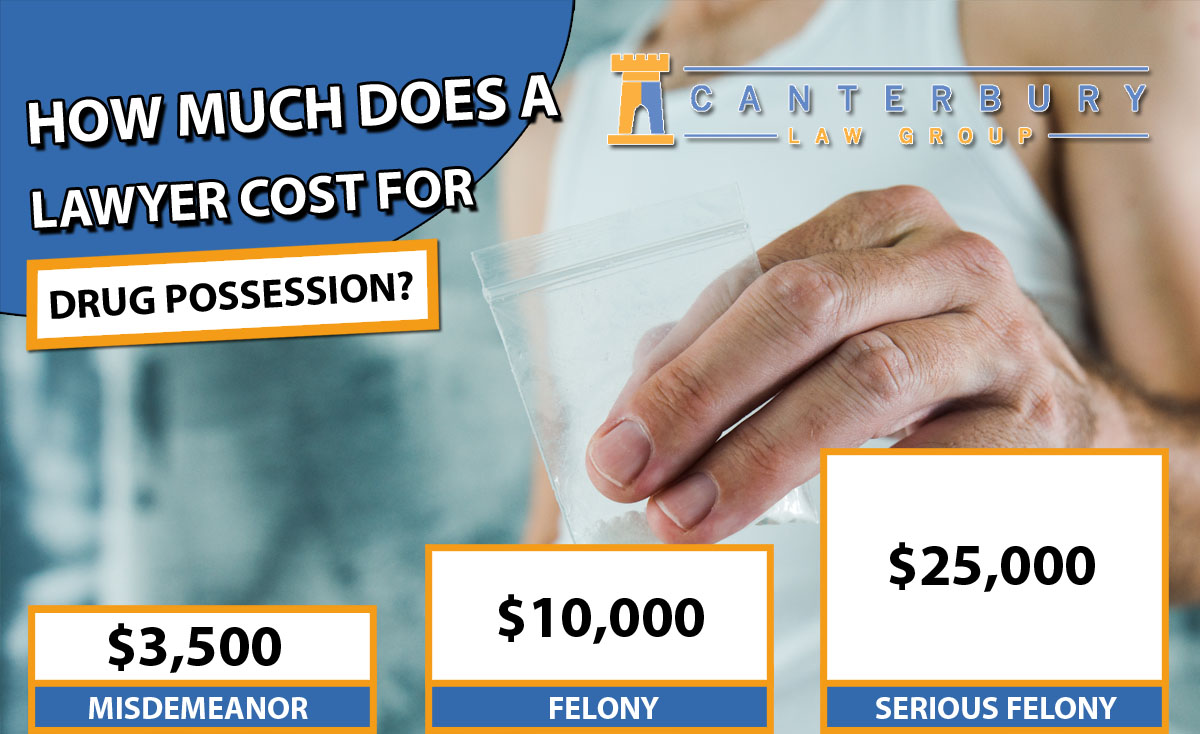
If you are charged with misdemeanor drug possession you can expect to pay anywhere from $2,000 to $3,000. If you are charged with felony drug possession you can expect to pay a retainer of $2,500 and pay a cost of $1,000 per day of trial.
According to CostHelper, You can expect to pay about $3500 for a misdemeanor drug possession charge. You can expect to pay about $10,000 for a felony drug possession charge. You can expect to pay about $25,000 for a serious felony drug possession charge.
Do I Need an Attorney to Represent Me?
It is vitally important to consult an experienced attorney before you respond to any criminal prosecution in writing or by direct contact with the prosecutor, even if think you have committed a particular crime and want to enter a guilty plea. At the very least, a skilled attorney can make sure the charges you face are appropriate for the facts of the case and they are capable of advocating on your behalf so you have the best chance of obtaining the lowest penalty possible. For example, say an individual is caught leaving a jewelry store with a necklace worth $100. The shop owner who is angry over the incident tells law enforcement the value of the necklace is $1,000. The difference in values means a charge of petty theft (misdemeanor) would become grand theft (felony). Even the most experienced criminal lawyers agree they would not want to defend themselves if charged so it is well worth speaking to a criminal defense lawyer even though you have the right to proceed alone in your own defense.
Is One Fee Structure Better than Another?
Obviously, the best billing structure is the one that works most effectively for the situation the client faces. Criminal defense lawyers certainly understand how stressful these events are and they try to make the financial aspects of your case as pain free as they can. Regardless, it is always best to know what it is you are paying for.
Learning how billing works is an ideal first step to initiating a discussion with your lawyer regarding their billing structure. Never feel afraid to ask why they are charging the way they do and how they are utilizing their time and planning to ensure your freedom. When you need protection from criminal prosecution you can look and contact a skilled criminal defense lawyer today.
*This information is not intended to be legal advice. You can contact Canterbury Law Group today to learn more about your unique legal needs.
Sources
Kirby, John. “How Much Will a Criminal Defense Lawyer Cost?” Attempted Murder Lawyers | LegalMatch Law Library, 20 Feb. 2018, www.legalmatch.com/law-library/article/how-much-will-a-criminal-defense-lawyer-cost.html.
Need A Criminal Defense Lawyer In Scottsdale or Phoenix?
Canterbury Law Group’s criminal defense lawyers in Phoenix and Scottsdale will defend your case with personal attention and always have you and your best interests in mind when offering legal solutions. Call today for an initial consultation! We handle criminal defense cases in all areas of Phoenix including Mesa, Tempe, Chandler, Maryville, Apache Junction, and more.
We are experienced criminal defense attorneys and will fight for you to obtain the best possible outcome. Our firm will rigorously represent you, so you can get on with your life. Call today for an initial consultation! 480-744-7711 or [email protected]
*This information is not intended to be legal advice. Please contact Canterbury Law Group today to learn more about your personal legal needs.


